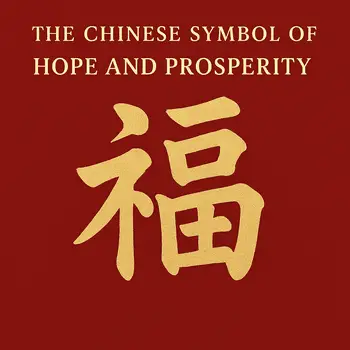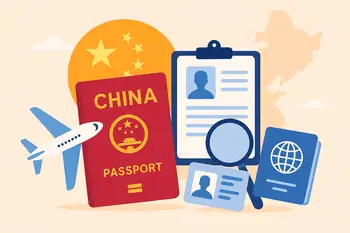
China’s Permanent Residence (PR), commonly known as the China Green Card or Five-Star Card, offers significant advantages for highly skilled professionals—but obtaining this coveted status remains exceptionally selective.
With fewer than 10,000 new cards issued in 2023 despite China hosting approximately 845,000 foreign workers, PR status represents an elite immigration pathway reserved for top-tier talent.
This guide provides a balanced view of PR benefits alongside the stringent eligibility requirements and application realities as of 2025.
Eligibility Requirements: The First Hurdle
Before considering the benefits, understand if you qualify under China’s selective criteria:
| Eligibility Pathway | Key Requirements (2025) |
|---|---|
| Senior-Level Employment | • 4+ consecutive years in China • Minimum 6 months residence each year • In Shanghai: Minimum CNY 886,104 annual salary • Minimum CNY 177,221 annual income tax |
| High-Skilled Talent | • 3+ consecutive years in China • International recognition in your field • Significant contributions to China’s priority sectors • Institutional recommendation |
| Investment | • Western/Central Regions: USD 500,000 • Central China: USD 1 million • Eastern Coastal Regions: USD 2 million • 3+ years business operation |
| Family Reunion | • Marriage to Chinese citizen for 5+ years • 5 years residence (9+ months annually) • Stable income and accommodation |
Source: SJ Grand (2025)
Application Process: Time, Cost, and Complexity
The PR application process involves:
- Timeline: 6-12 months processing time
- Approval Rate: Less than 1% of applications succeed
- Documentation: Extensive paperwork requiring authentication and translation
- Costs: Application fee (CNY 1,500) + Card issuance fee (CNY 300) + Professional assistance (typically CNY 30,000-100,000)
Source: Ikky In China (2025)
Key Benefits for Qualified Professionals
1. Employment Flexibility with Regional Nuances
PR holders enjoy greater job mobility compared to work visa holders:
| Aspect | Work Visa | Permanent Residence |
|---|---|---|
| Change employers | Requires new application | Complete freedom (with industry exceptions) |
| Start a business | Requires additional permits | No restrictions (some sectors excepted) |
| Geographic restrictions | May be limited to specific regions | Nationwide validity |
| Unemployment period | Limited (typically 30 days) | Unlimited |
Important Note: Certain strategic industries and government positions may remain restricted regardless of PR status.
2. Access to Social Benefits
PR holders gain access to China’s social welfare system:
- Healthcare: Enrollment in public insurance programs at local rates
- Education: Children can attend public schools with domestic student status
- Pension: Participation in China’s pension system
- Housing Funds: Eligibility for housing fund programs in most cities
Regional Variation: Benefit implementation varies by province and city, with tier-1 cities typically offering more comprehensive coverage.
3. Property Ownership Rights
PR status provides enhanced property rights, though some restrictions remain:
| Location | Work Visa Holders | PR Holders |
|---|---|---|
| Tier-1 Cities | Limited to one property after 1+ year residence | Multiple properties allowed (subject to local purchase restrictions) |
| Tier-2/3 Cities | Varies by location | Fewer restrictions, similar to citizens |
| Commercial Property | Significant restrictions | Greater flexibility |
Source: Ikky In China (2025)
4. Travel Convenience with the Five-Star Card
The upgraded Foreign Permanent Resident ID Card (introduced December 2023) offers:
- Visa-free entry and exit from China
- Simplified border processing
- Enhanced security features for identity verification
- Integration with digital services and transportation systems
Maintenance Requirement: PR holders must reside in China for at least 3 months annually to maintain status.
5. Family Benefits
PR status provides advantages for family members:
- Simplified visa process for immediate family
- Access to education without international student fees
- Pathway to PR for spouses and dependent children
- Healthcare access for family members
6. Business and Investment Opportunities
PR holders enjoy enhanced business rights:
- Establish companies without foreign investment restrictions in many sectors
- Participate in certain government procurement opportunities
- Access to domestic funding sources and grants
- Simplified regulatory compliance in many areas
Sector Limitations: Strategic industries may still have foreign ownership restrictions regardless of PR status.
Tax Implications: An Important Consideration
PR status may affect your tax situation:
| Aspect | Work Visa | Permanent Residence |
|---|---|---|
| Tax on China income | Yes | Yes |
| Global income reporting | Generally no | Potential requirement |
| Tax treaties application | Standard foreign treatment | May vary |
Source: SJ Grand (2025)
Renewal and Maintenance Requirements
PR is not truly “permanent” and requires:
- Card renewal every 5-10 years (depending on age)
- Minimum residence of 3 months annually
- Compliance with Chinese laws and regulations
- Potential revocation for extended absence or legal violations
The Citizenship Reality Check
Unlike the PR systems in many countries, China’s PR rarely leads to citizenship:
- China does not recognize dual citizenship
- Naturalization requires renouncing original citizenship
- Naturalization is extremely rare, even for long-term PR holders
- PR should be viewed as a long-term residence solution, not a citizenship pathway
Strategic Considerations: Is PR Right for You?
Consider pursuing PR if:
- You’ve established long-term personal or professional roots in China
- You meet one of the eligibility pathways and can document your qualifications
- You seek employment mobility and independence from a single employer
- You plan to stay in China indefinitely
A work visa may be more practical if:
- You’re in the early stages of your China career
- You don’t yet meet the high thresholds for permanent residence
- You prefer flexibility to leave China without residency obligations
- You want to avoid potential global tax reporting requirements
Regional Variations Worth Considering
PR requirements and benefits vary significantly across China:
- Shanghai/Beijing: Highest salary thresholds but most comprehensive benefits
- Greater Bay Area: Emerging talent programs with specialized pathways
- Free Trade Zones: Potential for streamlined applications in priority sectors
- Western Development Regions: More flexible requirements for certain industries
Final Thoughts
For highly skilled professionals who qualify, China’s PR status offers valuable benefits that enhance career opportunities and quality of life.
However, the extremely selective nature of the program, complex application process, and ongoing maintenance requirements mean it’s not suitable or accessible for most foreign professionals in China.
Before pursuing PR, consult with immigration specialists familiar with your specific situation and the latest regional policies to determine if the benefits justify the significant investment of time and resources required for application.


